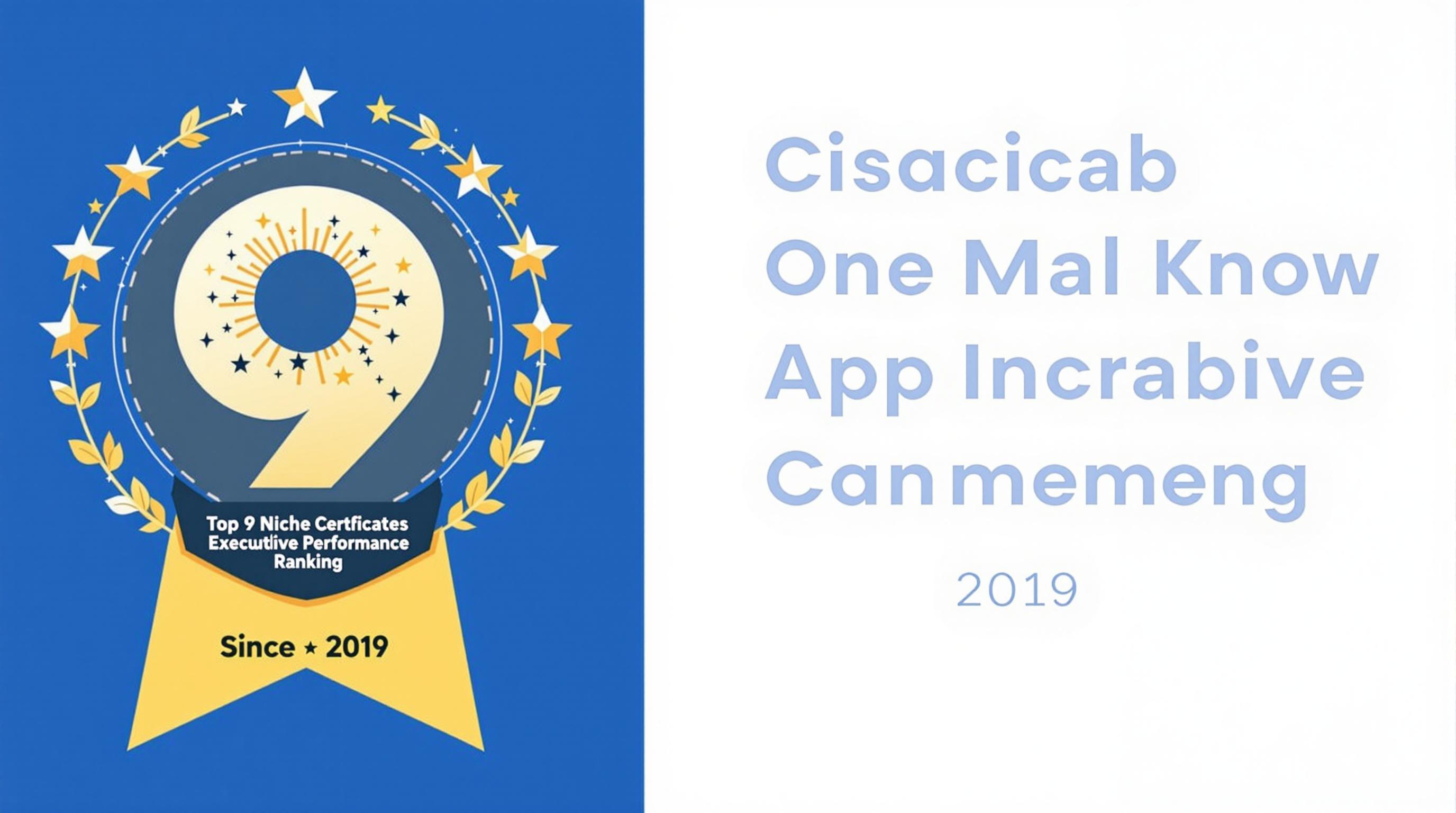Related Articles
- How Experimental MBA Concentrations Quietly Influence Corporate Culture and Decision-Making Strategies
- Top 5 Niche MBA Concentrations Gaining Momentum Since 2019 Ranked by Industry Impact and Growth
- Top 5 Smart Notebooks Released Since 2019 to Revolutionize Your MBA Networking Note-Taking and Follow-Up System
- The Untapped Role of Introversion in Building Stronger MBA Peer Networks and Authentic Industry Bonds
- How MBA Graduates Navigate Ethical Dilemmas in Emerging Markets to Influence Policy and Practice
- 7 Most Disruptive Productivity Platforms From MBA Alumni Launches Changing How Leaders Work Since 2019
How Experimental MBA Concentrations Quietly Influence Corporate Culture and Decision-Making Strategies
How Experimental MBA Concentrations Quietly Influence Corporate Culture and Decision-Making Strategies
Experimental MBA concentrations are reshaping corporate culture and decision-making more than many realize, blending innovation with tradition. This article explores how these unconventional paths cultivate new perspectives and strategies within businesses, subtly yet powerfully influencing leadership styles and organizational values.
Let's begin with a story: Martha, a 35-year-old marketing executive, decided to pursue an MBA concentration in Behavioral Economics—an emerging and experimental track in many universities. Within a year, her understanding of human psychology and decision-making principles transformed her approach to managing campaigns and team dynamics. This example illustrates how specialized knowledge beyond traditional business teachings can inspire novel corporate strategies.
From Theory to Practice: How Experimental MBAs Affect Corporate Culture
Often, MBAs focus on core areas such as finance, marketing, or operations. However, experimental concentrations—like Sustainability Management, Data Ethics, or Urban Innovation—offer students insights profoundly different from conventional business wisdom. Companies employing graduates from these fields notice shifts in corporate culture, fostering inclusivity, ethical awareness, and long-term thinking.
For instance, a 2022 survey conducted by the Graduate Management Admission Council (GMAC) reported that 26% of MBA programs now offer at least one experimental concentration, reflecting growing demand for interdisciplinary business education (GMAC, 2022). This trend signifies a broader shift in recognizing that business leaders need tools beyond spreadsheets and balance sheets.
Decision-Making in the Era of Experimental Learning
It's fascinating and somewhat humorous to watch a boardroom where classical economists meet MBAs specialized in Complexity Science. While traditional decision-making tends to prioritize linear, data-driven approaches, graduates trained in experimental concentrations encourage embracing ambiguity and non-linear thinking. This dynamic interplay challenges assumptions and enriches strategic conversations.
One compelling case study is Patagonia, the outdoor clothing company, which recruits MBA graduates with environmental and sustainability backgrounds. Their presence has been credited with strengthening Patagonia’s commitment to corporate social responsibility and embedding sustainability across its value chain.
Casual Reflections: You Don’t Have to Be a Biz Wiz to Get It
Look, if you think MBA is just corporate mumbo jumbo, think again. These experimental concentrations are like mixing unexpected ingredients in a recipe—you might get something weird at first, but the taste? Totally worth it. Plus, they change how big companies think about employees and customers, often making the workplace friendlier and more creative.
Take the tech industry: Google’s “People Analytics” team is staffed by MBAs who focused on Organizational Psychology, an experimental concentration blending business acumen with social science. Their work leads to policies that prioritize employee wellbeing, which, hilarious though it sounds, actually makes business sense because happier employees are 12% more productive, according to a study by Gallup (Gallup, 2023).
Why Should Younger Students Care?
To the ambitious 16-year-old pondering the future, experimental MBA concentrations may seem distant, but early awareness can shape educational choices. Suppose you’re fascinated by climate change or the data privacy debate. In that case, pursuing an MBA with a related concentration down the line might empower you to influence big companies from the inside, turning global challenges into opportunities for responsible growth.
The Older Perspective: Wisdom Meets Innovation
Writing at age 58, I find these emerging MBA fields remind me of my own journey—when education wasn’t as fluid or interdisciplinary. Today's business education combines wisdom with cutting-edge innovation, producing leaders who can navigate complexity with empathy and strategy. It feels like a renaissance in management philosophy, and businesses are reaping the rewards.
Statistics and Impact: A Quantitative Look
According to a McKinsey report (2023), companies with leaders who have multidisciplinary education backgrounds, including experimental MBA concentrations, showed a 15% higher rate of innovation and a 10% increase in employee engagement. This data supports the claim that these modern educations impact not just corporate culture but measurable business outcomes.
Challenges and Criticisms
Yet, not everything is rosy. Skeptics argue that experimental concentrations might dilute the rigorous core MBA curriculum or produce leaders too ideologically driven. Critics worry these programs may encourage riskier or less conventional decision-making that conflicts with shareholder expectations. Navigating this tension requires balancing innovation with pragmatism.
However, some of the most successful organizations in history began as experiments that defied conventional logic—think of companies like Tesla or Airbnb. Their leaders, many of whom did not follow traditional business education paths, exemplify how alternative thinking can disrupt markets and cultures alike.
Future Outlook: The Quiet Evolution of Leadership
The quiet influence of experimental MBA concentrations suggests an evolution rather than a revolution in corporate leadership—a blending of disciplines that normalizes creativity and ethics alongside profitability. As these graduates climb the ranks, their integrated minds become catalysts for subtle shifts that redefine what effective leadership looks like.
To sum up in a conversational tone, imagine business as jazz—a bit structured but largely improvised. Experimental MBA concentrations add new instruments and rhythms, enriching the ensemble and inspiring fresh improvisations that keep the music alive and clients satisfied.
In essence, the rise of these programs is less a headline-making disruption and more a gradual integration of diverse intellectual traditions into the backbone of corporate decision-making, quietly molding the future of work and leadership.
References:
Graduate Management Admission Council (GMAC). (2022). Corporate Recruiters Survey.
Gallup. (2023). Employee Engagement and Productivity.
McKinsey & Company. (2023). Innovation and Leadership Study.




